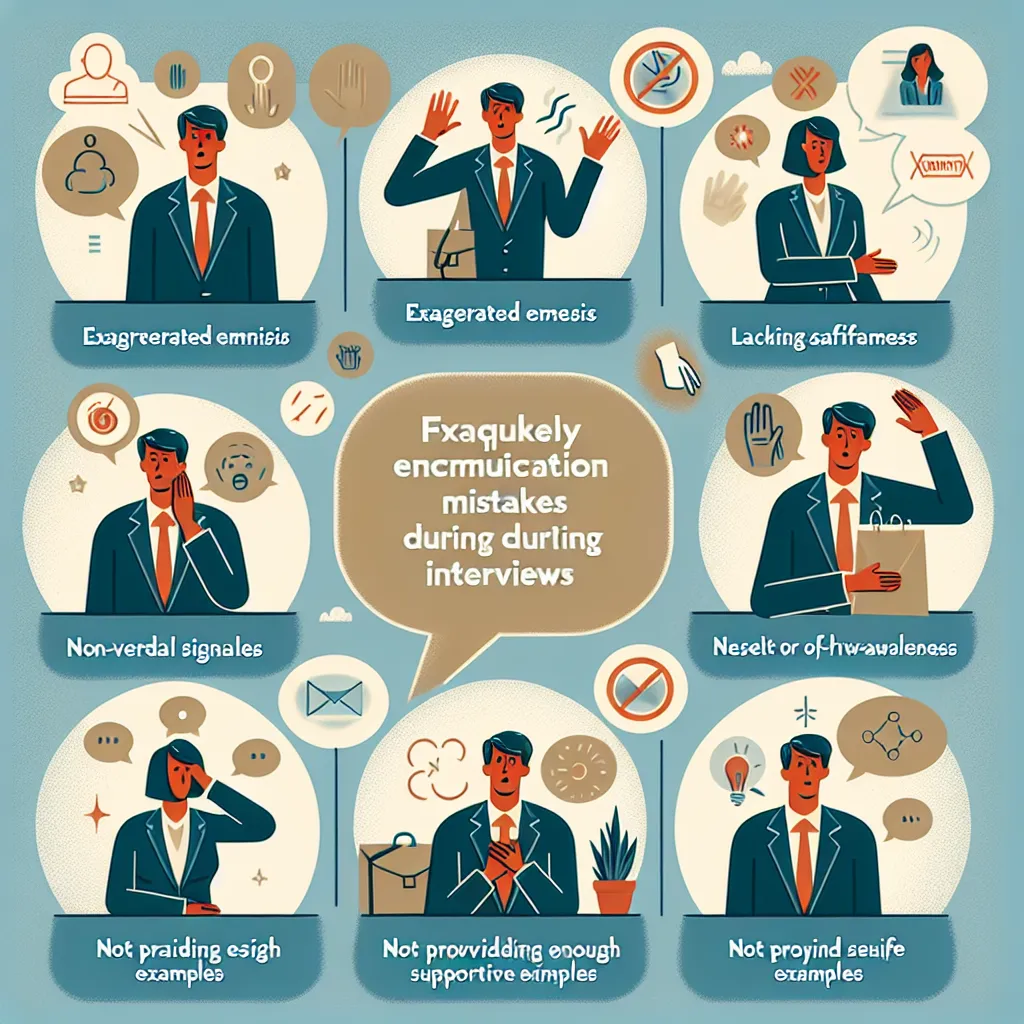In today’s competitive job market, being able to effectively communicate your communication style during an interview can make a significant difference in landing your dream job. This article will guide you through the process of articulating your communication approach, helping you stand out as a strong candidate.
Understanding the Importance of Communication Style
Communication style refers to the way you interact with others, share information, and express your thoughts and ideas. In a professional setting, your communication style can greatly impact your effectiveness in teamwork, leadership, and overall job performance.
Why Interviewers Ask About Communication Style
Interviewers often inquire about communication style to assess:
- Your self-awareness
- Your ability to work with diverse teams
- Your potential fit within the company culture
- Your capacity to handle various workplace situations
 Communication Style Interview
Communication Style Interview
Describing Your Communication Style Effectively
When discussing your communication style in an interview, consider the following approaches:
1. Be Honest and Self-Aware
Start by honestly assessing your communication strengths and areas for improvement. Use specific examples to illustrate your style.
Example: “I would describe my communication style as direct yet empathetic. I believe in clear, concise communication while being mindful of others’ perspectives and feelings.”
2. Highlight Adaptability
Emphasize your ability to adapt your communication style to different situations and audiences.
Example: “While I naturally lean towards a collaborative communication style, I can adjust my approach based on the needs of the situation. For instance, in time-sensitive projects, I can adopt a more directive style to ensure efficiency.”
3. Discuss Your Listening Skills
Effective communication is not just about speaking; it’s also about listening. Highlight your ability to actively listen and understand others.
Example: “An essential part of my communication style is active listening. I make a conscious effort to understand not just the words, but also the intent behind what others are saying.”
4. Provide Concrete Examples
Use the STAR method (Situation, Task, Action, Result) to give specific instances where your communication style positively impacted a work situation.
Example: “In my previous role, we faced a challenging project with tight deadlines. I initiated daily stand-up meetings where team members could quickly share updates and concerns. This open communication style helped us identify and solve problems quickly, ultimately delivering the project on time.”
5. Align with the Company Culture
Research the company’s values and culture beforehand, and try to align your communication style with their expectations.
Example: “I understand that your company values transparency and open dialogue. This aligns well with my communication style, as I believe in fostering an environment where all team members feel comfortable sharing ideas and feedback.”
Common Interview Questions About Communication Style
Here are some questions you might encounter, along with sample answers:
-
Q: “How would you describe your communication style?”
A: “I would describe my communication style as clear, concise, and collaborative. I believe in presenting information in a straightforward manner while also encouraging input and feedback from others.” -
Q: “How do you adapt your communication style when working with different personalities?”
A: “I try to be perceptive of others’ communication preferences. For more introverted colleagues, I might use written communication or one-on-one conversations. With more extroverted team members, I might engage in more frequent, casual check-ins.” -
Q: “Can you give an example of a time when you had to adjust your communication style?”
A: “When I transitioned to a leadership role, I realized I needed to be more assertive in my communication. I worked on providing clearer directions and setting explicit expectations, which greatly improved team performance.” -
Q: “How do you ensure your message is understood correctly?”
A: “I often use the technique of summarizing key points and asking for confirmation. I also encourage questions and provide opportunities for clarification to ensure mutual understanding.” -
Q: “How do you handle communication breakdowns?”
A: “When I notice a communication breakdown, I try to address it promptly. I believe in having open, honest conversations to identify the root cause and work collaboratively to find a solution.”
Avoiding Common Pitfalls
When discussing your communication style, be mindful of these potential pitfalls:
- Overemphasis on a single style: Avoid presenting yourself as inflexible.
- Lack of self-awareness: Be honest about your strengths and areas for improvement.
- Ignoring non-verbal communication: Remember that body language and tone are also part of your communication style.
- Not providing examples: Always back up your claims with concrete instances from your experience.
 Communication Pitfalls
Communication Pitfalls
Follow-up Questions and Suggested Responses
-
Q: “How do you handle conflicts in communication?”
A: “I approach conflicts with a problem-solving mindset. I focus on active listening, validating others’ perspectives, and working towards a mutually beneficial solution.” -
Q: “What role does written communication play in your style?”
A: “Written communication is crucial in my style, especially for documentation and asynchronous collaboration. I strive for clarity and conciseness in my written communications.” -
Q: “How do you communicate complex ideas to non-technical stakeholders?”
A: “I use analogies and visual aids to break down complex concepts. I also tailor my language to the audience’s level of understanding.” -
Q: “Can you describe a situation where your communication style positively impacted a project?”
A: “In a cross-functional project, my inclusive communication style helped bridge gaps between departments, leading to better collaboration and a successful outcome.” -
Q: “How do you ensure effective communication in remote work settings?”
A: “I leverage various digital tools, schedule regular check-ins, and make an extra effort to be clear and thorough in my written communications to compensate for the lack of face-to-face interaction.”
Conclusion
Effectively communicating your communication style in an interview is a valuable skill that can set you apart from other candidates. By being self-aware, providing concrete examples, and demonstrating adaptability, you can showcase your communication strengths and their potential value to the organization. Remember, the key is to be authentic and to align your style with the needs of the role and the company culture.
For more insights on acing your interview, check out our articles on common English interview questions and how to talk about your interpersonal skills in an interview.




